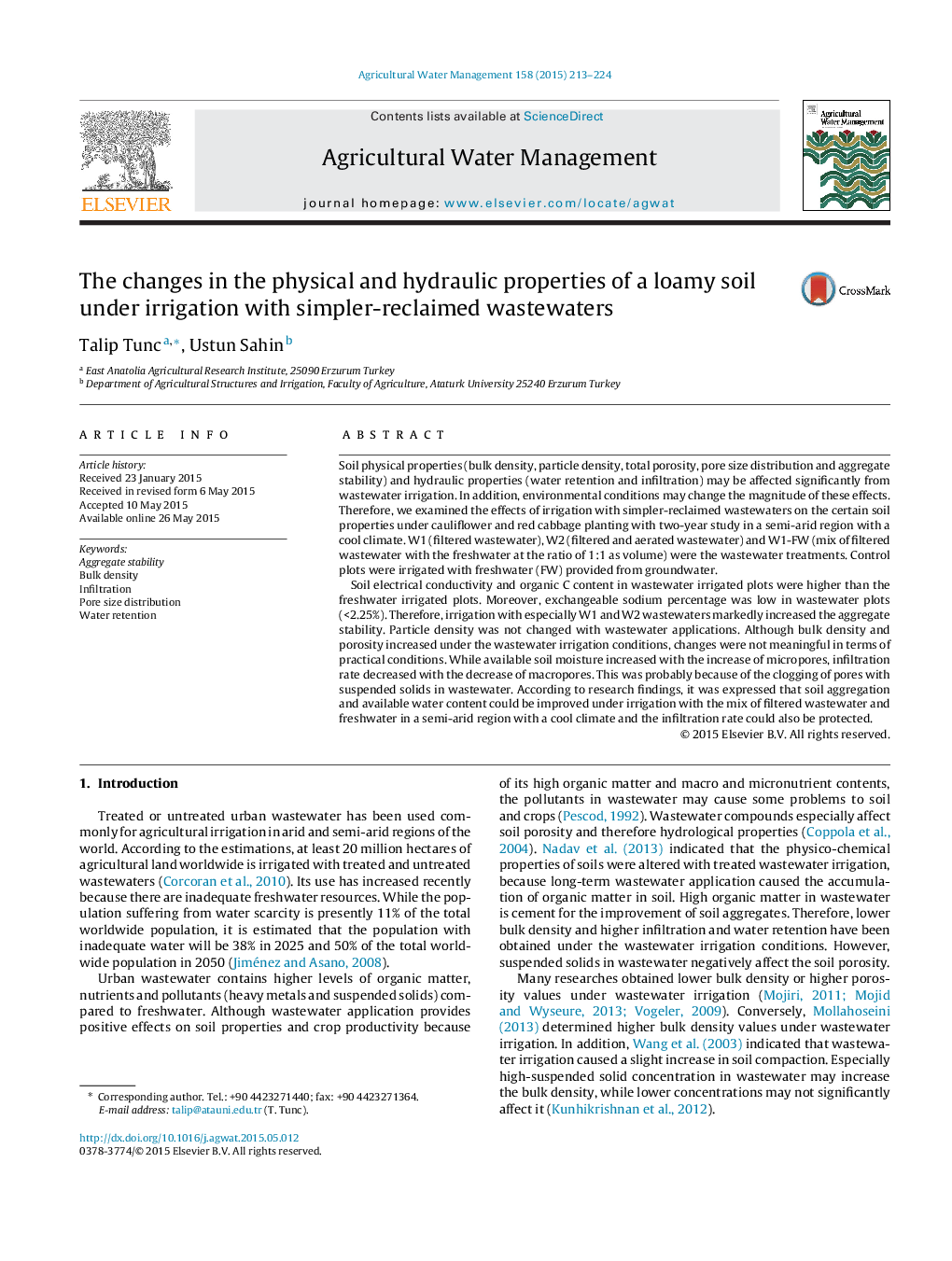| کد مقاله | کد نشریه | سال انتشار | مقاله انگلیسی | نسخه تمام متن |
|---|---|---|---|---|
| 4478437 | 1622921 | 2015 | 12 صفحه PDF | دانلود رایگان |
• Wastewater irrigation significantly increased the aggregate stability.
• Bulk density partially decreased under wastewater irrigation conditions.
• Wastewater irrigation affected the pore size distribution by decreasing macroporosity and increasing microporosity.
• Narrowed soil pores led to a decrease in the infiltration rate.
• Increase of the micropores provided an increase in the available water retention.
Soil physical properties (bulk density, particle density, total porosity, pore size distribution and aggregate stability) and hydraulic properties (water retention and infiltration) may be affected significantly from wastewater irrigation. In addition, environmental conditions may change the magnitude of these effects. Therefore, we examined the effects of irrigation with simpler-reclaimed wastewaters on the certain soil properties under cauliflower and red cabbage planting with two-year study in a semi-arid region with a cool climate. W1 (filtered wastewater), W2 (filtered and aerated wastewater) and W1-FW (mix of filtered wastewater with the freshwater at the ratio of 1:1 as volume) were the wastewater treatments. Control plots were irrigated with freshwater (FW) provided from groundwater.Soil electrical conductivity and organic C content in wastewater irrigated plots were higher than the freshwater irrigated plots. Moreover, exchangeable sodium percentage was low in wastewater plots (<2.25%). Therefore, irrigation with especially W1 and W2 wastewaters markedly increased the aggregate stability. Particle density was not changed with wastewater applications. Although bulk density and porosity increased under the wastewater irrigation conditions, changes were not meaningful in terms of practical conditions. While available soil moisture increased with the increase of micropores, infiltration rate decreased with the decrease of macropores. This was probably because of the clogging of pores with suspended solids in wastewater. According to research findings, it was expressed that soil aggregation and available water content could be improved under irrigation with the mix of filtered wastewater and freshwater in a semi-arid region with a cool climate and the infiltration rate could also be protected.
Journal: Agricultural Water Management - Volume 158, August 2015, Pages 213–224
